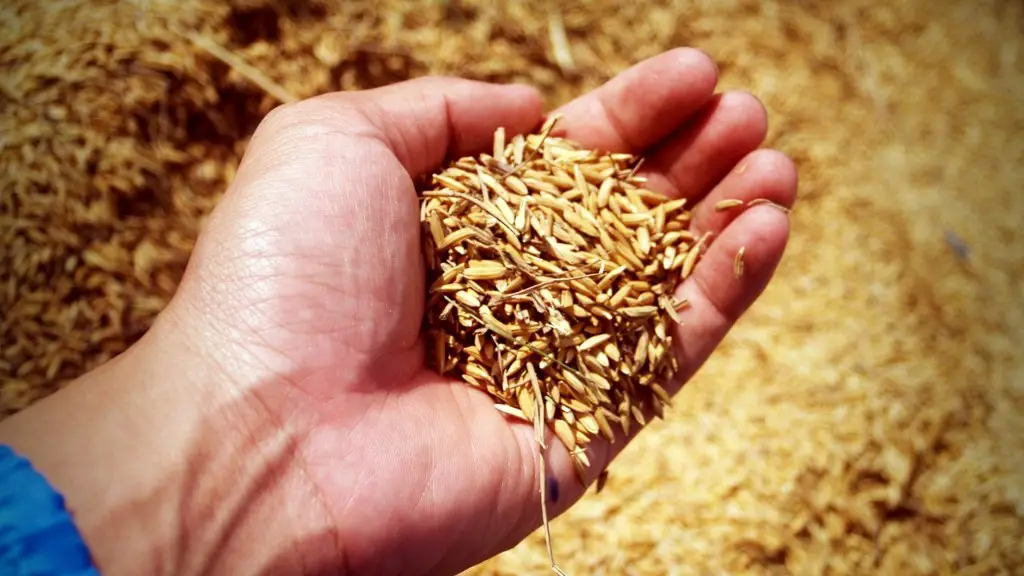A plant hormone is any one of a number of naturally occurring compounds that serve to regulate plant growth and development. Plant hormones are similar to the hormones found in animals, but they are generally much less complex and require differentdegrees and amounts of energy to produce their effect. There are five major classes of plant hormones—auxins, gibberellins, cytokinins, abscisic acid, and ethylene—and each class typically has several different hormones that function within it. All five classes of plant hormones are used in agriculture to some extent.
There are a number of ways in which plant hormones are used in agriculture. One common way is to use them to promote growth in crops. This can be done by applying a hormone solution to the leaves of the plants, which encourages them to grow larger and faster. Additionally, plant hormones can be used to regulate the ripening of fruits and vegetables, ensuring that they are ready to harvest at the correct time. Finally, plant hormones can also be used to discourage pests from damaging crops, by making the plants less attractive to them.
Which plant hormone is widely used in agriculture?
Ethephon is a plant growth regulator that produces ethylene in plants. Ethylene is a plant hormone that regulates various plant processes, such as fruit ripening, flower senescence, and leaf abscission. Ethephon is used in agriculture to control these processes. It is also used to thin fruit, promote uniform fruit ripening, and prevent pre-harvest drop.
Farmers, gardeners, and fruit growers can all use plant hormones. They mostly use a human-made auxin called synthetic auxin. Synthetic auxin is sprayed on crops to kill weeds. The hormone makes weeds grow too fast and they die.
Where are hormones used in agriculture
The use of these hormones in cattle and sheep has been shown to increase muscle growth and overall body size, as well as improve the efficiency of feed conversion (the amount of food an animal needs to consume in order to gain weight). While the use of these hormones is regulated by the FDA, there is some concern that they may pose a health risk to humans who consume meat and dairy products from hormone-treated animals.
Plant hormones are essential for plant growth and development. They control all aspects of plant growth, from embryogenesis and organ size, to pathogen defense and stress tolerance. Plant hormones are produced in extremely low concentrations, making them difficult to study. However, recent advances in technology have allowed researchers to better understand the role of plant hormones in plant growth and development.
How do farmers use hormones?
Hormones are used in the meat and dairy industries to help animals gain weight faster and produce more milk. Hormones have been used for decades and are generally considered safe. However, some people are concerned about the potential health effects of consuming hormone-treated meat and dairy products.
Hormones play an important role in regulating various activities in plants, which in turn can impact agricultural productivity. For example, the hormone auxin promotes growth of plant shoots and roots, and also helps to heal wounds and prevent infection or insect damage. By understanding the role of hormones in plant growth and development, farmers can more effectively manage their crops and improve yields.
How the use of hormones can help to improve crop yield?
Hormones are sensitive to changes in the amount of sunlight that plants are exposed to. When competition for sunlight increases, plants respond by increasing stem elongation growth. This allows them to reach for the sun and compete for space. Expanded leaf area also helps to increase the surface area for photosynthesis, which is essential for plant growth.
Plant hormones are responsible for controlling various growth and development processes in plants. Some of the main functions of plant hormones include regulating cell division, cell enlargement, flowering, seed formation, and dormancy. Additionally, plant hormones can also promote leaf and fruit abscission. Ultimately, plant hormones play a vital role in the overall growth and development of plants.
What are the major plant hormones and its uses
Auxins and cytokinins are plant hormones that can greatly improve plant vigor, promote growth of roots and shoots and reduce stress. Auxins stimulate cell division and growth, and cytokinins promote cell division and growth. Gibberellins are plant hormones that stimulate cell enlargement and differentiation. Ethylene is a plant hormone that promotes fruit ripening and abscisic acid is a plant hormone that promotes seed dormancy.
Synthetic estrogens are man-made chemicals that mimic the effects of the hormone estrogen in the body. They were first used in the early 1950s to increase the size of cattle and chickens. DES (diethylstilbestrol) was one of the first synthetic estrogens made and used commercially in the United States to fatten chickens. DES was also used as a drug in human medicine. However, it was later found to cause cancer, and its use was banned in the United States in 1971.
Does the use of hormones in agriculture affect human health?
Most health experts agree that HGPs, when used according to good agricultural practice, pose no additional health risk to consumers. However, some people remain concerned about the potential risks of these hormones, particularly in terms of their impact on hormone levels in the body. While more research is needed in this area, the current evidence does not support the claim that HGPs pose a significant health risk to consumers.
Auxin is a plant hormone that promotes growth. It is synthesized at the tip of the shoot and on the stem apices and is also produced in the buds, stems and root tips. Auxin promotes cell elongation and helps in the growth of stems. It also helps in the development of vascular tissue and the formation of fruit.
Are hormones used in chickens
Hormones are not used in the production of poultry in the United States. The Food & Drug Administration prohibits the use of such hormones. So any brand of chicken can be labeled “Raised without hormones.”
The use of synthetic growth promoters, including hormones, steroids, and beta-agonists, is prohibited in organic farming. These substances can have harmful effects on the health of both animals and humans, and their use is not in line with organic principles.
What are the advantages of plant hormones?
Plant hormones play a very important role in the growth and development of plants. They help to promote, control, influence and develop the growth from embryo to reproductive development. They also help to increase stress tolerance and pathogen defense.
Auxin and cytokinin are two of the most important plant hormones involved in regulating plant growth and development. They are present naturally in plants at varying concentrations throughout the season, and their activity is continuous, unlike other hormones which act more like switches, being present only at specific times. Both auxin and cytokinin are essential for proper plant growth and development, and they play key roles in many processes, including cell division, cell differentiation, and organogenesis.
Conclusion
Plant hormones are used in agriculture in a variety of ways. They can be used to promote growth, suppress growth, induce flowering, and control fruit ripening. Farmers can use plant hormones to manipulate crops to produce higher yields, improve the quality of fruits and vegetables, and control the timing of the harvest.
Plant hormones are used in agriculture to regulate plant growth and development. They are used to promote flowering, fruit ripening, and seed germination. They are also used to prevent pre-mature fruit drop and leaf senescence. Plant hormones are applied to crops to improve yields and quality.





